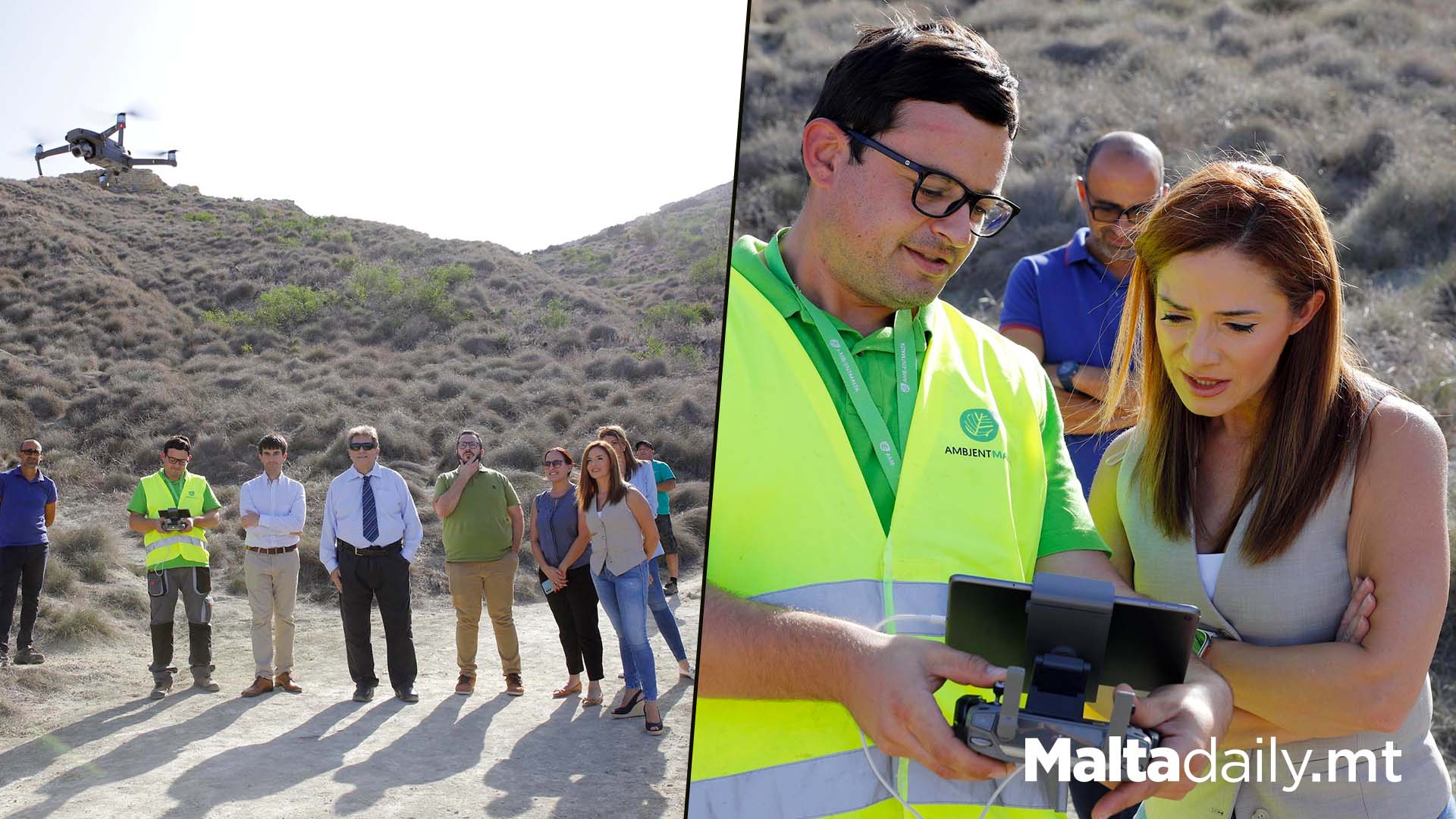Drones And Ai Help Ambjent Malta Monitor Invasive Alien Species

Ambjent Malta and the University of Malta worked together to develop a new tool that combines drones and neural networks to monitor and manage invasive plant species in valleys and other rural areas.
Through a project funded by the Malta Information Technology Agency (MITA), the University’s Faculty of Information and Communication Technology introduced an innovative application of aerial drone technology within the field of environmental science, revolutionising the methodology of monitoring and safeguarding Malta’s natural heritage.
Minister for the Environment, Energy and Enterprise Miriam Dalli met Ambjent Malta employees and the University team leading this project during one of the first trials of the new digital application at Għajn Tuffieħa Bay, on Thursday.
To develop this new digital tool, the University used high-precision aerial drones to capture high-resolution ortho-images of the Maltese terrain, with dimensions reaching an impressive 50,000 by 20,000 pixels. These images are invaluable for Ambjent Malta to survey the spread of invasive alien species in local biodiversity, covering extensive and often remote areas with unparalleled precision and efficiency.
This initiative’s key accomplishment is the use of Convolutional Neural Networks (CNNs) for identifying up to seven distinct invasive alien plant species within ortho-images. By creating a comprehensive training dataset through manual labelling, CNNs can now recognise these species’ visual characteristics with remarkable efficiency and precision, even in unmarked real-world scenarios.
Minister Miriam Dalli highlighted that education reaches beyond the physical classroom. This project serves as a tangible demonstration of the harmonious integration of education, environmental science, and state-of-the-art technology.
“This project will empower Ambjent Malta and other environmental organisations to improve the effectiveness of their work to conserve Malta’s ecosystems. The digital transition of Ambjent Malta’s environmental monitoring is streamlining and expanding the process of identifying invasive species, and with more data in hand, we will be in a better position to implement sustainable interventions at different levels,” Miriam Dalli stated.
Josianne Muscat and Alex Borg Galea from Ambjent Malta and Prof. John Abela and Prof. Ing. Gianluca Valentino from the Faculty of Information and Communication Technology were present during the trial of the new application.
#MaltaDaily


